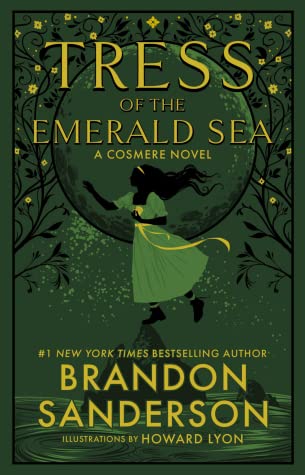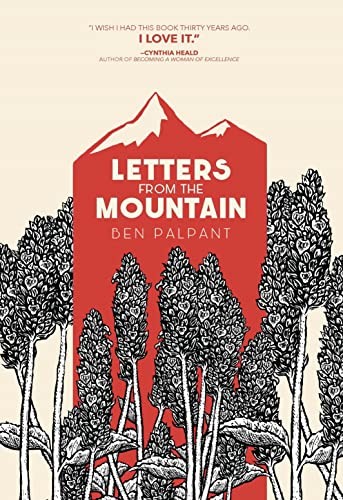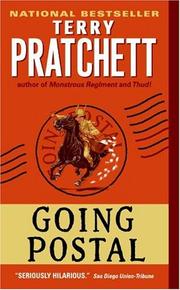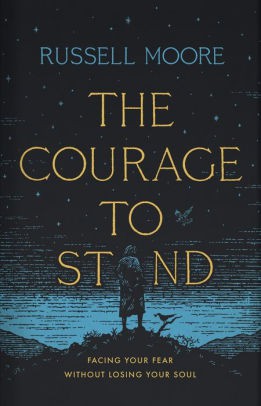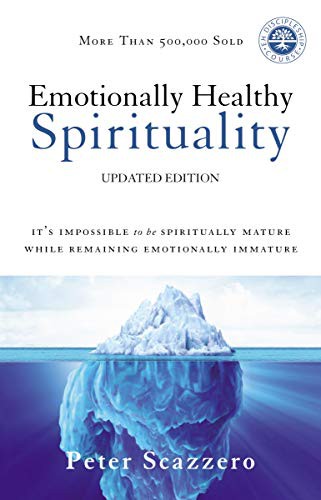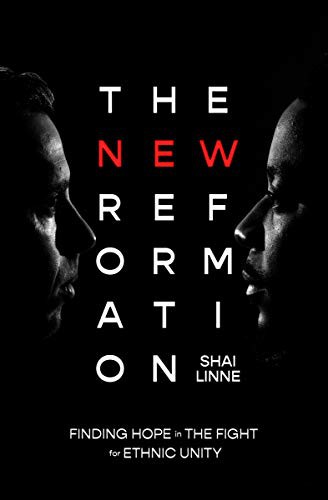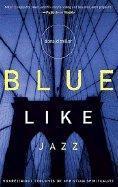I've flipped and read in this volume a lot now looking for poetry that is Christian rather than just employing language that sounds vaguely spiritual — there are maybe a handful or fewer in the whole volume. For every three poems by William Baer responding to Scripture, there are countless that pray to Eve as if she were divine instead of to God, or that try to reshape God into the image of the Native American "Great Spirit" and ascribe sin and failure to Him in the process, or that elevate human behaviors (even sinful ones) to the status of being holy somehow rather than signs of sin's curse.
There is in most of this less meter or form or skill or semblance of Christianity and more streams-of-consciousness new-age syncretism and pantheism and straight-up secularism.
This reads a bit like what an unbelieving academic who's never encountered Christianity might think …
User Profile
This link opens in a pop-up window
User Activity
Review of 'Christian Poetry in America Since 1940' on 'Goodreads'
1 star
I've flipped and read in this volume a lot now looking for poetry that is Christian rather than just employing language that sounds vaguely spiritual — there are maybe a handful or fewer in the whole volume. For every three poems by William Baer responding to Scripture, there are countless that pray to Eve as if she were divine instead of to God, or that try to reshape God into the image of the Native American "Great Spirit" and ascribe sin and failure to Him in the process, or that elevate human behaviors (even sinful ones) to the status of being holy somehow rather than signs of sin's curse.
There is in most of this less meter or form or skill or semblance of Christianity and more streams-of-consciousness new-age syncretism and pantheism and straight-up secularism.
This reads a bit like what an unbelieving academic who's never encountered Christianity might think is Christian, just by virtue of vague familiarity with some words that TV preachers might have mentioned before.
Which is all to say, it's not worth a space on the shelf, sadly. And I don't feel like I could donate it, since it could give an absolutely false impression of what Christianity is (and for fear that someone younger might pick it up and read the poems that — with no forewarning from this collection's editors — linger on rape and graphically describe lynchings).
Spencer Williams reviewed Mountain in the Sea by Vajra Chandrasekera
Review of 'Mountain in the Sea' on 'Goodreads'
4 stars
It does the thing all good sci-fi should do: use the sci-fi setting.to examine and interrogate questions of ethics and society.
The narrative is fairly engaging, even if the characters' dialogue leaves them with very little in the way of distinct voices — perhaps for reasons that are maybe explained in-world.
Overall, it's a fun summer read that raises a lot of interesting ideas about what it means to be a person and how our actions impact those around us.
For parents of sci-fi readers, there's enough casual (but not really described in detail, thankfully) sex in the book that it's probably not one to hand to teenagers — so be aware of that.
Spencer Williams reviewed Letters from the Mountain by Ben Palpant
Review of 'Letters from the Mountain' on 'Goodreads'
5 stars
Insightful, well-written, and relentlessly focused on the glory of God and the diligent use of skill towards that end.
If Goodreads had half-stars, this would be 4.5 stars: there are times where he makes two contrary generalized prescriptions in a single chapter, without enough clarity to know where the balance lies, particularly in the last few chapters.
This is a small knock, though, for how good the rest of the book is, so it's worth rounding up rather than down.
Spencer Williams reviewed Going Postal by Terry Pratchett
Review of 'Everlasting Is the Past' on 'Goodreads'
2 stars
The author is too much in love with his own cleverness of style, I think, as the structure of the book often becomes incoherent streams of consciousness that muddy the waters of the stories he tells.
At other times, he makes some truly puzzling snap judgments, ironically while describing how well he learned to love this inner-city body of Christ.
In the end, it seems that he's not learned that much except how to blend in to a different community from the one where he grew up, and then how to become fiercely and harshly dismissive of those outside in the name supposedly of defending those whom he thinks need him as their shield.
He revels in threatening the city council with a hostile newspaper column, and weeps in repentance of preaching Jesus's unconditional redeeming love too...fiercely, I suppose, to a woman on her deathbed who in the end, doubted …
The author is too much in love with his own cleverness of style, I think, as the structure of the book often becomes incoherent streams of consciousness that muddy the waters of the stories he tells.
At other times, he makes some truly puzzling snap judgments, ironically while describing how well he learned to love this inner-city body of Christ.
In the end, it seems that he's not learned that much except how to blend in to a different community from the one where he grew up, and then how to become fiercely and harshly dismissive of those outside in the name supposedly of defending those whom he thinks need him as their shield.
He revels in threatening the city council with a hostile newspaper column, and weeps in repentance of preaching Jesus's unconditional redeeming love too...fiercely, I suppose, to a woman on her deathbed who in the end, doubted Christ's love for her because of several hard turns of life. Instead, he sees her as having been better than him, because she "never depended on anyone for anything" and "imposed her will everywhere she went", while he'd just been trying to prove to himself that he was a good pastor by telling her that Jesus's love is not absent during hardship or death.
Mixed in here somewhere is a story of a young man learning to love an all-but-abandoned church and community. Unfortunately, rather than sourcing that love from Christ and striving to be Christ to and among them - and to teach them to do the same to a lost world - he instead became a jealous and angry avenger on their behalf, deeply suspicious of the outside world and anything that could be perceived as a slight.
Spencer Williams reviewed Courage to Stand by Russell D. Moore
Review of 'Courage to Stand' on 'Goodreads'
4 stars
An excellent book, with much that is needed for thoughtful, honest Christian life against a backdrop of confusion about what it means to be a Christian, especially against the backdrop of pervasive "means-to-an-end" Christianity - Moore points back to the reality that our lives are the means, and the end is Christ Jesus...not the other way around.
The one weakness of this book is its persistent attachment to the framing device of Elijah at Mount Horeb -- while that's a good reference point for some of the principles in this book, others leave an impression of being squeezed into the suitcase of this story, jammed just a bit noticeably out of shape to fit in there.
Review of 'Emotionally Healthy Spirituality' on 'Goodreads'
1 star
For Scazzero, the highest marks of spiritual maturity are getting in touch with your passions and emotions, letting them guide you, and throwing off the awfulness that must inevitably exist in your family upbringing and anyone who might not affirm you you wholeheartedly as you follow your dreams.
The worst things you could do conversely, are to turn out like your parents in any way, to question whether your emotions at any point are in line with the truth of Scripture, or to get too attached to other people to the point that you care what they think. Or to work in a job that you sometimes don't find enjoyable or rewarding (because, in Scazzero's view, that isn't God's will for your life, since otherwise it would line up with the "seeds of goodness" -- things you enjoy -- that God put in you).
After all, as Scazzero says, "Jesus …
For Scazzero, the highest marks of spiritual maturity are getting in touch with your passions and emotions, letting them guide you, and throwing off the awfulness that must inevitably exist in your family upbringing and anyone who might not affirm you you wholeheartedly as you follow your dreams.
The worst things you could do conversely, are to turn out like your parents in any way, to question whether your emotions at any point are in line with the truth of Scripture, or to get too attached to other people to the point that you care what they think. Or to work in a job that you sometimes don't find enjoyable or rewarding (because, in Scazzero's view, that isn't God's will for your life, since otherwise it would line up with the "seeds of goodness" -- things you enjoy -- that God put in you).
After all, as Scazzero says, "Jesus was not selfless", so neither should we feel obligated to be selfless. "Find the door of your heart", he quotes, likely out of context, "you will discover it is the door to the kingdom of God."
The full quote from Scazzero doesn't paint a better picture:
"Living your God-given life involves remaining faithful to your true self. It entails distinguishing your true self from the demands and voices around you and discerning the unique vision, calling, and mission the Father has given to you.11 It requires listening to God from within yourself and understanding how he has uniquely made you. Knowing your personality, temperament, likes and dislikes, thoughts, and feelings all contribute to your discovery. John Chrysostom, the golden-mouthed preacher and archbishop of Constantinople, described our work as follows: “Find the door of your heart, you will discover it is the door of the kingdom of God.”"
He spends a while trying to paint Satan's temptation of Jesus in the desert as trying to get Jesus to buy into a lie that Jesus wasn't good enough or loveable enough, so that he can then apply that to all of his readers, encouraging them that they're already good enough how they are and perfectly loveable. This seems at odds both with the Biblical account of that event (wherein Satan tempted Jesus with the very same pursuit of self-fulfillment and prosperity that Scazzero advocates in this book, trying like Scazzero to lure Jesus away from His redemptive purpose of selfless sacrifice for the lost), and with the rest of that same chapter that tells you to pursue change in your life by listening more to your emotions and shedding off any responsibilities that you don't enjoy (since if they were God's will for you, they'd be enjoyable, so if they're not enjoyable, they're not God's will for you).
He then goes on to advise that you ignore anyone who doesn't agree with your pursuit of enjoyment and self-realization (especially if they're your family), stating that it's necessary that you outgrow those dissenters by way of a process he grabs from pop psychology, unable to find it anywhere in Scripture:
"Murray Bowen, the originator of the term differentiation, emphasizes that in families there is a powerful opposition when one member of that system matures and increases his or her level of differentiation. He argues that even a little growth can cause a reaction in those closest to him or her. In the same way, I have seen repeatedly that when anyone makes a change in themselves (becoming their true self in Christ), a few people around them often get upset. Bowen describes the opposition in three stages: Stage One: “You are wrong for changing and here are the reasons why.” Stage Two: “Change back and we will accept you again.” Stage Three: “If you don’t change back, these are the consequences” (which are then listed).21 At each season of our journey with Christ, whenever Geri and I have taken steps to more clearly define who we are and who we are not in Christ, there has always been a consequence. It will happen with you too. But keep making changes. Be willing to tolerate the discomfort necessary for growth. Pray for the Holy Spirit’s power to continue. You are doing something that has never been done before in your history!"
Finally, most of the way through that chapter, he makes his way at last to reference the Bible a second time (after many appeals to secular psychologists and Jewish rabbis)....but only to take an entire chapter out of context in a way that would make the most chintzy of Philippians 4:13 football jerseys look like sound exegesis:
"Hebrews 11 tells us that some people conquered kingdoms. Others were sawed in two for their faith. Only God knows your future. Yet you can be sure of one thing: your life, like [Chuck] Yeager’s airplane, will shake in the process of you maturing into the person God intends."
Hebrews 11 is a chapter recounting how salvation came to all of the Jewish patriarchs not by their own works, nor by anything within themselves, but by the work of God (who then gave them the faith in God alone to act in obedience to God, even when that required self-sacrifice).
Scazzero instead frames it as "if people tell you no, don't listen to them! After all, Moses and Abraham and Rehab didn't listen to the haters either!"
And that's really a succinct summary of the book: the gospel it preaches is one of following your dreams and your feelings above all else, and salvation through ignoring anyone or anything that would have you do something you don't enjoy. There are no "one-another" commands here aside from "affirm one another's feelings", much to the apostle Paul's chagrin; rather, you shouldn't get too attached to anyone outside yourself, except to agree with them when they tell you "you're doing everything right, keep going!"
Scazzero, like Osteen before him, swaps heaven for happiness, and the cross for "centering" on oneself, and along the way maps out -- and then sells workbooks, DVDs, and speaking gigs for -- a path to that promises you'll gain the whole world, and trains you on how to silence any concerns about losing your soul.
Spencer Williams reviewed The New Reformation by Shai Linne
Review of 'The New Reformation' on 'Goodreads'
5 stars
If the title had you thinking, "yet another book on race", then, friend, I couldn't recommend this book more: yes, it's about race (or really, ethnicity), and Christianity, but it's really about Christlikeness, and ethnic unity is a symptom of what getting that right would look like, if we could do it.
Similarly, if it sounds like a book that will "lay waste" to the errors in the modern American church, then I'd recommend this book to you: rather than an assault on all that's wrong with American Christians (you know, those ones over there), it gives instead a diagnosis and treatment for how we as individual Christians can grow in Christlikeness (and yes, that includes overcoming the tendency to look and think like our surrounding culture).
Shai writes with a clear, instructive style, soaked in Scripture at every turn, that avoids both didactic condescension and trite obviousness. He challenges …
If the title had you thinking, "yet another book on race", then, friend, I couldn't recommend this book more: yes, it's about race (or really, ethnicity), and Christianity, but it's really about Christlikeness, and ethnic unity is a symptom of what getting that right would look like, if we could do it.
Similarly, if it sounds like a book that will "lay waste" to the errors in the modern American church, then I'd recommend this book to you: rather than an assault on all that's wrong with American Christians (you know, those ones over there), it gives instead a diagnosis and treatment for how we as individual Christians can grow in Christlikeness (and yes, that includes overcoming the tendency to look and think like our surrounding culture).
Shai writes with a clear, instructive style, soaked in Scripture at every turn, that avoids both didactic condescension and trite obviousness. He challenges readers to check how their attitudes and actions line up with Christ's vision for the church (painting a realistic, but gracious view of its failings both current and historical), while practicing and advocating the gracious "along-side-ness" of a fellow sinner saved by Jesus's mercy. As much as each principle in the book is explicitly rooted in Biblical references, the book as a whole is an exemplar of what it looks like to take 1 Corinthians 6:1-11 to heart.
The orthodoxical-and-orthopraxical "third way" Shai lays out (the titular "New Reformation") is first of all humble, gracious, and fixated on what God would have us to do and be in order to mimic our Savior, and not at all distracted by what that implies about political or social affiliations. It's believers who are quick to be peacemakers both by confessing our own sins and repenting of them, and by letting love cover over a multitude of sins and offenses from others.
This baseline humility and grace-oriented-ness shines through in the book, in Shai's interactions in his public life, and in the imitation of Christ that Shai points to over and over again in this book.
I'd recommend this book to any believer, anyone interested in overcoming (or even just understanding) ethnic divisions in the US, anyone curious what Christianity is about, or really just anyone. It's excellent.
Review of "The Woman Who Smashed Codes: A True Story of Love, Spies, and the Unlikely Heroine Who Outwitted America's Enemies" on 'Goodreads'
3 stars
A fair and interesting account of the two figures who laid the groundwork for wartime cryptanalysis and cryptography in America: Elizebeth and William Friedman. Without these two unusual characters, for all their own personal flaws, both World Wars likely would have ended quite differently....though the NSA also might not have been founded. A mixed legacy to be sure, fitting the somewhat mixed lives they led.
It's an interesting story full of intrigue, but unfortunately the author of this book occasionally seems to forget that, feeling the need to try to artificially inject interest by reaching for bizarre metaphors (comparing the act of decryption as opposed to simple literary analysis as reaching in and ripping words apart, leaving your "hands red and bloodied with the letters, in one example).
Still, it's a fascinating read, and a case of finally giving credit where it's properly due, despite the long-successful efforts of others …
A fair and interesting account of the two figures who laid the groundwork for wartime cryptanalysis and cryptography in America: Elizebeth and William Friedman. Without these two unusual characters, for all their own personal flaws, both World Wars likely would have ended quite differently....though the NSA also might not have been founded. A mixed legacy to be sure, fitting the somewhat mixed lives they led.
It's an interesting story full of intrigue, but unfortunately the author of this book occasionally seems to forget that, feeling the need to try to artificially inject interest by reaching for bizarre metaphors (comparing the act of decryption as opposed to simple literary analysis as reaching in and ripping words apart, leaving your "hands red and bloodied with the letters, in one example).
Still, it's a fascinating read, and a case of finally giving credit where it's properly due, despite the long-successful efforts of others (like J. Edgar Hoover) to wield confidentiality as a means of claiming credit themselves.
Spencer Williams reviewed Blue like jazz by Donald Miller
Review of 'Blue like jazz' on 'Goodreads'
4 stars
There's a lot of good stuff in here that is especially timely for issues the American church is facing. There are also quite a few examples of Miller getting in his own way, adding unnecessary tangents to otherwise-good points that seem to be there primarily to shock the reader -- there's a blurry line in this book between humble honesty about Miller's own faults and borderline-pride at being different from other Christians by not being so strict about things like the appropriateness of joking about sex or swearing.
Much of what's in here could and should convict American Christians who are steeped in "sanitized church culture": the need to actually go out into the world and show the love of Christ to the "unlovables" of the world who need His redemption most ("My friend Andrew the Protestor believes things. Andrew goes to protests where he gets pepper-sprayed, and he does …
There's a lot of good stuff in here that is especially timely for issues the American church is facing. There are also quite a few examples of Miller getting in his own way, adding unnecessary tangents to otherwise-good points that seem to be there primarily to shock the reader -- there's a blurry line in this book between humble honesty about Miller's own faults and borderline-pride at being different from other Christians by not being so strict about things like the appropriateness of joking about sex or swearing.
Much of what's in here could and should convict American Christians who are steeped in "sanitized church culture": the need to actually go out into the world and show the love of Christ to the "unlovables" of the world who need His redemption most ("My friend Andrew the Protestor believes things. Andrew goes to protests where he gets pepper-sprayed, and he does it because he believes in being a voice of change. My Republican friends get frustrated when I paint Andrew as a hero, but I like Andrew because he actually believes things that cost him something. Even if I disagree with Andrew, I love that he is willing to sacrifice for what he believes. And I love that his beliefs are about social causes. Andrew says that it is not enough to be politically active. He says legislation will not save the world. On Saturday mornings Andrew feeds the homeless. He sets up a makeshift kitchen on a sidewalk and makes breakfast for people who live on the streets. He served coffee and sits with his homeless friends and talks and laughs, and if they want to pray he will pray with them. He's a flaming liberal, really. The thing about it is, though, Andrew believes this is what Jesus wants him to do. Andrew does not believe in empty passion...Andrew doesn't cloak his altruism within a trickle-down economic theory that allows him to spend fifty dollars on a round of golf to feed the economy and provide jobs for the poor. He actually believes that when Jesus says feed the poor, He means you should do this directly. Andrew is the one who taught me that what I believe is not what I say I believe; what I believe is what I do."), or the need to break the American Church of being inexplicably joined at the hip to the Republican party (a human organization that Miller correctly identifies as one that "doesn't give a crap about the causes of Christ"), and the need to re-evaluate how we look at the lost not as "enemy combatants" who must be conquered and put down, but as hostages of sin ("The churches I attended would embrace war metaphor. They would talk about how we are in a battle, and I agreed with them, only they wouldn't clarify that we are battling poverty and hate and injustice and pride and the powers of darkness. They left us thinking that our war was against liberals and homosexuals. Their teaching would have me believe I was the good person in the world and the liberals were the bad people in the world. Jesus taught that we are all bad and He is good, and He wants to rescue us because there is a war going on and we are hostages in that war. The truth is we are supposed to love the hippies, the liberals, and even the Democrats, and that God wants us to think of them as more important than ourselves. Anything short of this is not true to the teachings of Jesus.")
The American Church in the 2020s needs to hear these things desperately, because it's fallen prone to a thirst for political power and control that's led it away from the true gospel of Jesus Christ and towards the false gospel of Ronald Reagan and Jerry Falwell. (As the book puts it, "Tony the Beat Poet says the church is like a wounded animal these days. He says we used to have power and influence, but now we don't, and so many of our leaders are upset about this and acting like spoiled children, mad because they can't have their way. They disguise their actions to look as though they are standing on principle, but it isn't that, Tony says, it's bitterness. They want to take their ball and go home because they have to sit on the bench. Tony and I agreed that what God wants us to do is sit on the bench in humility and turn the other cheek like Gandhi, like Jesus. We decided that the correct place to share our faith was from a place of humility and love, not from a desire for power.")
So there's much that's good in here. There's also quite a bit that could have made the book better if it was left out entirely -- like Miller's seeming endorsement of profanity as somehow "liberated" rather than unbiblical, or his apparent view of sexual promiscuity not as sinful but as just empty, as evidenced by the casual way he brings it up frequently as though it were a normal part of life.
Miller also plays a bit of a shell game with terminology that, if he examined it himself a bit more honestly, he might find to be disingenuous, or at least inaccurate: specifically, he takes many of the things he dislikes about how Christianity is practiced in America today -- most of them legitimate faults that are attributable to American culture rather than to Christianity itself -- and labels them as either "the Christian religion" or "Christianity", instead taking all the "good parts" out and labeling them "Christian spirituality", mixing in quite a bit of disdain for any sort of mandates for personal holiness as part of just "religion" rather than the sort of "essence" of Christianity (his "Christian spirituality").
This behavior takes a bit of the wind out of the sails of a theme throughout the book of pursuing Christ and imitating Christ without putting cultural preferences in the way of actually practicing Christianity, and of showing grace and love to sinners and seeing the person through their sin. Miller's willing to extend that grace to those the American church has typically treated as lepers, even when they're unrepentant (homeless people, mentally-ill people, politically-liberal academics, homosexual people), but seems less willing to do the same for the sinful people who comprise the church (yes, even the "big Christianity" churches that embody much of Miller's often-legitimate complaints).
On the whole, it's a good book to read with a grain of salt, because it provides plenty of opportunities to react to it strongly, and then to test our reactions against the Bible to "shake out" which of our adverse reactions are Biblical and which are merely a product of cultural comfort zones. Such an exercise is needed by the American Church in the 2020s, at a time when the marriage between American Evangelicalism and the Republican Party has led to much of the church clinging to a political gospel-of-Republican-power (with Trump as its golden calf), which is in nearly all ways opposed to the true gospel of Christ Jesus.
Spencer Williams reviewed Passion for Ignorance by Renata Salecl
Review of 'Passion for Ignorance' on 'Goodreads'
1 star
Picked it up, read a a chapter or so (there are only 7 chapters in the entire book), and was thoroughly unimpressed. It reads like a middle-schooler hastily putting together a "research paper" comprised of all the various quotes and anecdotes they googled the night before that seemed tangentially related to the assigned subject, but not particularly related to one another.
I bounced ahead to the other chapters, reading a bit to see if there were signs of improvement as the book progressed. There were not.
No real conclusions are drawn, and no real insight is offered. Just a loose collection of anecdotes, some mutually-conflicting, from which no inference or connection is even attempted.
It might make an okay addition to the local "little free library", if I thought it was worth anyone's time to read.
Spencer Williams reviewed Leaf by Niggle by J.R.R. Tolkien
Review of 'Leaf by Niggle' on 'Goodreads'
5 stars
Tolkien, deep in the midst of creating his now-famous (and now-complete) masterpiece, the Lord of the Rings, wrote this short-form, lighter fiction as a way of working through the difficulty of such long, detailed, and seemingly interminable labor to produce some art that would meet his desired expectations.
Along the way, he re-examines what constitutes art, and how beauty is made not just by the painter with canvas, but by the gardener with soil, and by extension, any who apply their God-given talents and practice-refined skills towards creating beauty in the world around them, beauty that reflects in small part the illustrious handiwork of our own Maker.
I highly recommend this short story, especially to those who may feel overwhelmed by a project, or to those who feel themselves "not artistically talented like those other people".

